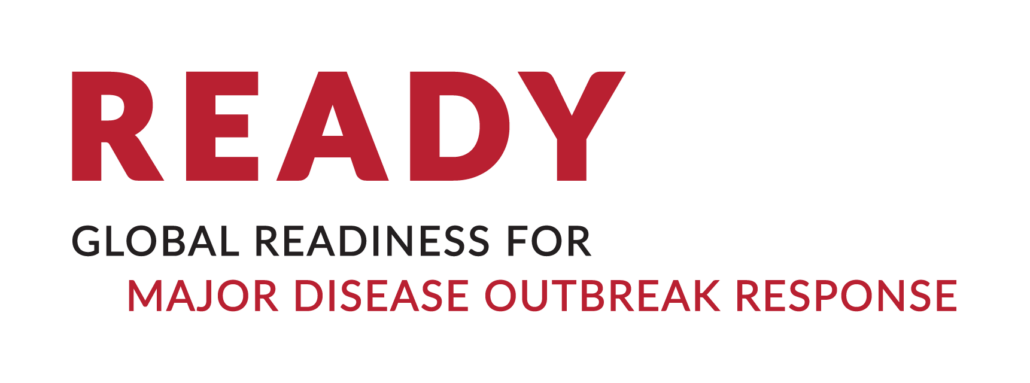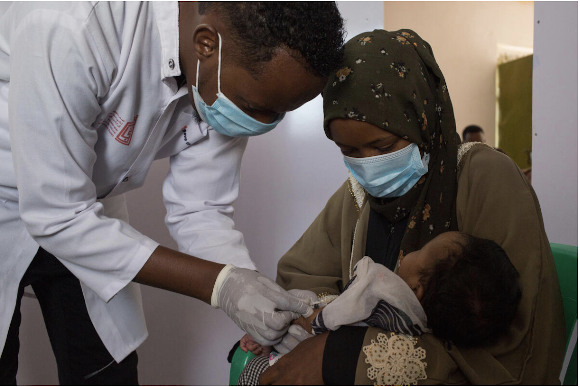Je, chanjo ya COVID-19 itawahi kuwafikia watu waliohamishwa kwa lazima?
Wazungumzaji: Prof. Heidi Larson, LSHTM; Colette Selman, Gavi; Morseda Chowdhury, BRAC; Dk. Ayoade Olatunbosun-Alakija, Aliyekuwa Mratibu Mkuu wa Misaada ya Kibinadamu, Nigeria; Dk. Joanne Liu, Chuo Kikuu cha Montreal na Rais wa zamani wa Kimataifa wa MSF
Juhudi zinaendelea ili kuharakisha utengenezaji na usambazaji wa chanjo ya COVID-19, msisitizo hadi sasa ukiwa kuangazia usawa katika usambazaji kati ya nchi. Ingawa COVID-19 ina athari kubwa zaidi kwa idadi fulani ya watu, ikijumuisha idadi ya watu waliohamishwa kwa lazima, mara nyingi haiwezekani kisiasa kusema kwamba kundi hili linapaswa kupewa kipaumbele linapokuja suala la kupanga kampeni za chanjo.
Uchunguzi wa kuenea kwa kiwango cha hatari unaonyesha kinga ya chini kwa magonjwa mbalimbali yanayoweza kuzuilika kati ya wakimbizi, na kiwango cha chini cha chanjo ya makundi haya ikilinganishwa na idadi ya wenyeji wa ndani pia imezingatiwa. Kwa kuongezea, kuna vizuizi mahususi—zisizo rasmi (lugha, ufikiaji wa habari na utamaduni) na kiuchumi na kiutawala ambavyo vinawazuia kupata kampeni za chanjo moja kwa moja. Je, hii ina maana gani kwa chanjo ya COVID-19 inayowafikia watu waliohamishwa kwa lazima? Je, ufikiaji unawezaje kuhakikishwa? Ni masuala gani ya kimaadili? Je, vifaa vitashughulikiwa vipi katika mazingira ya kibinadamu? Ungana na Profesa Heidi Larson na uchague wanajopo wanapojadili suala hili nyeti na lenye mzozo.
MODERATOR: Profesa Heidi Larson, Profesa wa Anthropolojia, Sayansi ya Hatari na Maamuzi, Shule ya London ya Usafi na Madawa ya Tropiki | Heidi Larson ni mwanaanthropolojia na Mkurugenzi wa The Vaccine Confidence Project (VCP); Profesa wa Anthropolojia, Sayansi ya Hatari na Uamuzi, LSHTM; Profesa wa Kliniki, Idara ya Afya Ulimwenguni, Chuo Kikuu cha Washington, Seattle, Marekani, na Profesa Mgeni katika Chuo Kikuu cha Antwerp, Ubelgiji. Hapo awali Dk. Larson aliongoza Mawasiliano ya Kimataifa ya Chanjo katika UNICEF, akiwa mwenyekiti wa Kikosi Kazi cha Utetezi cha GAVI, na alihudumu katika Kikundi Kazi cha WHO SAGE kuhusu kusitasita kwa chanjo. Nia yake hasa ya utafiti ni juu ya usimamizi wa hatari na uvumi kutoka kwa majaribio ya kimatibabu hadi kujifungua - na kujenga imani ya umma. Yeye ni mwandishi wa Stuck: Jinsi uvumi wa chanjo huanza na kwa nini hauondoki (OUP 2020).
WAANDAMANAJI
- Colette Selman, Mkuu wa Mkoa, Usaidizi wa Nchi, Gavi, Muungano wa Chanjo: Colette ana tajriba ya zaidi ya miaka 15 katika afya na maendeleo ya umma ikijumuisha katika Gavi, GFATM, Tume ya Ulaya, Mashirika Yasiyo ya Kiserikali na sekta ya kibinafsi, kwa kuzingatia mazingira tete na ya migogoro.
- Morseda Chowdhury, Mkurugenzi Mshiriki, Mpango wa Afya, Lishe, na Idadi ya Watu, BRAC: Morseda Chowdhury amefanya kazi katika BRAC kwa zaidi ya miaka 15, na inaongoza mwitikio wake wa afya ya umma kwa janga la COVID-19, ikiwa ni pamoja na idadi ya watu wa Rohingya waliohamishwa kwa lazima.
- Dkt. Ayoade Olatunbosun-Alakija, Aliyekuwa Mratibu Mkuu wa Misaada ya Kibinadamu, Nigeria: Dk. Olatunbosun-Alakija ni mamlaka inayotambulika duniani kote katika kuunganisha uhusiano kati ya hatua za kibinadamu na maendeleo endelevu ya binadamu. Kama Mratibu Mkuu wa Misaada ya Kibinadamu wa Nigeria, katika uongozi wa Kituo cha Uratibu wa Dharura, amehudumu kama mpatanishi wa ngazi ya juu kati ya watendaji wa serikali na wasio wa serikali katika ngazi za kiserikali na za kiserikali.
- Dkt. Joanne Liu, Profesa Mshiriki wa Kliniki, Chuo Kikuu cha Montreal; aliyekuwa Rais wa Kimataifa wa Madaktari wasio na Mipaka: Joanne Liu ni sauti inayoongoza kuhusu majanga ya kibinadamu ya kimatibabu, na aliwahi kuwa Rais wa Kimataifa wa Médecins Sans Frontières (MSF) kuanzia 2013 hadi 2019. Anasalia kuwa daktari anayefanya mazoezi, katika uwanja wa MSF na kupitia zamu za hospitali huko Montreal.


Tovuti hii imewezekana kwa msaada wa Watu wa Marekani kupitia Shirika la Maendeleo ya Kimataifa la Marekani (USAID) chini ya mpango wa TAYARI. READY (sio kifupi) inaungwa mkono na USAID Ofisi ya Demokrasia, Migogoro, na Usaidizi wa Kibinadamu, Ofisi ya Msaada wa Maafa ya Kigeni ya Marekani (OFDA) na inaongozwa na Okoa Watoto kwa kushirikiana na Kituo cha Johns Hopkins cha Afya ya Kibinadamu,, Kituo cha Johns Hopkins cha Mipango ya Mawasiliano, UK-Med, Muungano wa EcoHealth, na Rehema Malaysia. Yaliyomo kwenye tovuti hii ni jukumu pekee la Save the Children. Maelezo yaliyotolewa kwenye tovuti hii si lazima yaakisi maoni ya USAID, washirika wowote au wote wa muungano, au Serikali ya Marekani, na si taarifa rasmi ya Serikali ya Marekani.


